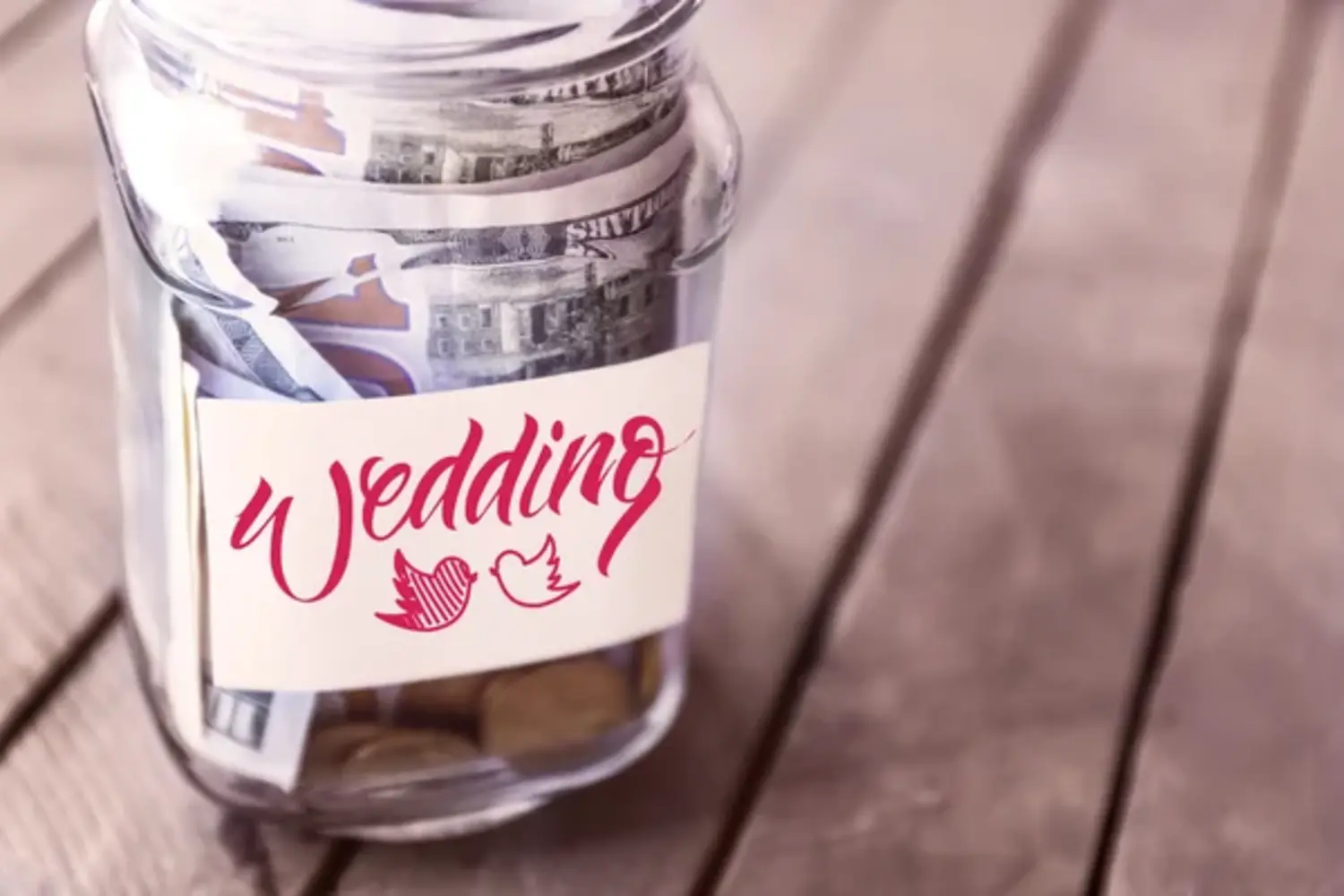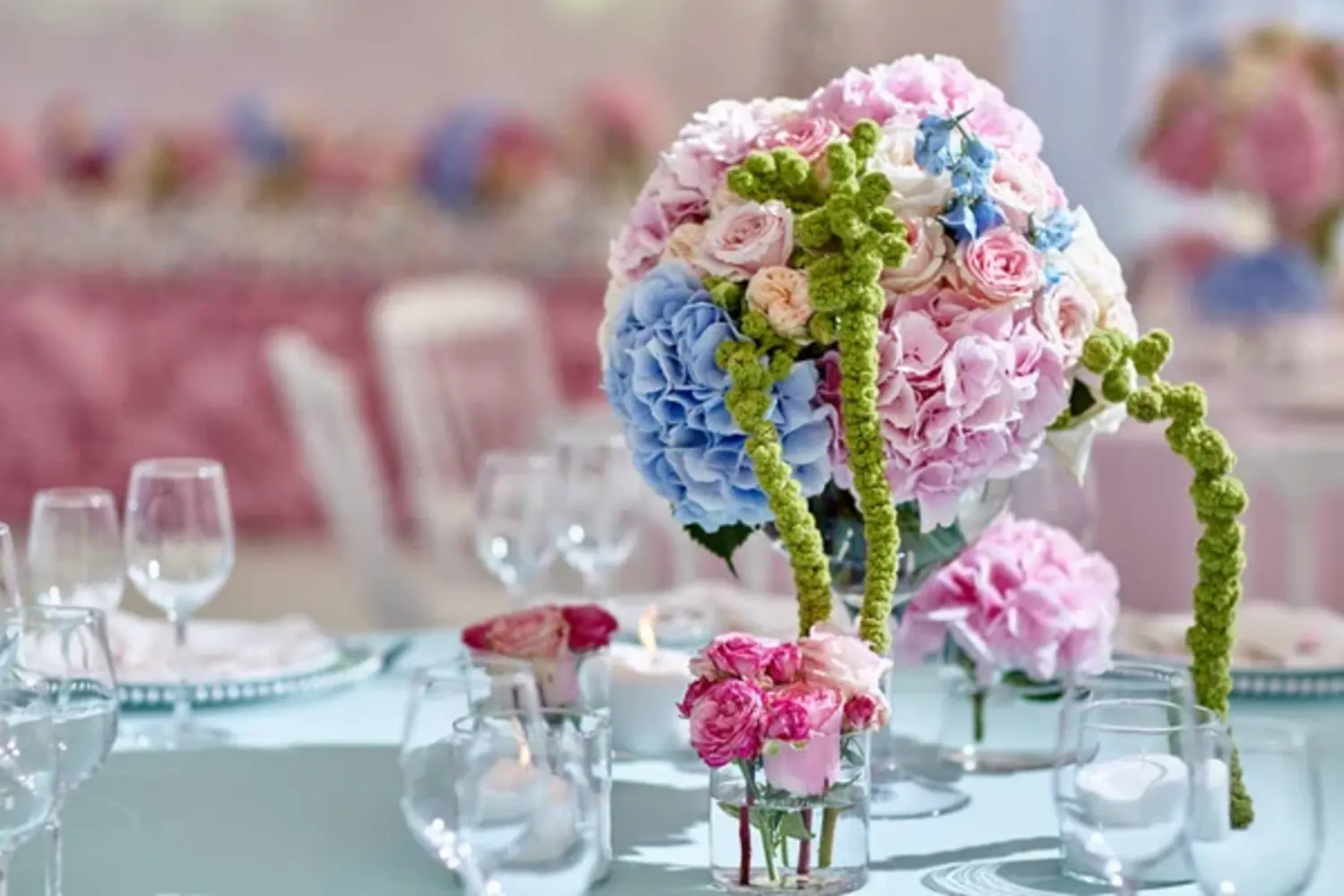Unveiling the Big Question: Are Weddings a Waste of Money? Let’s dive into the age-old conundrum that has sparked countless debates and opinions across generations.
From lavish fairy-tale affairs to intimate gatherings, weddings have been celebrated and scrutinized in equal measure. Is splurging on that perfect dress, exquisite venue, and gourmet cuisine truly worth it in the grand scheme of life?
Join us on this thought-provoking journey as we explore the emotions, economics, and traditions behind the glimmering facade of matrimonial extravagance.
Hold your bouquet tight as we unravel the truth and find out whether love and commitment can flourish without breaking the bank!

Are Weddings A Waste Of Money? (Ultimate Answer)
The High Cost of Weddings
1. The Ever-Increasing Price of “I Do”
The wedding industry, fueled by dreams of fairy-tale nuptials, has seen a staggering surge in expenses. From breathtaking venues and designer attire to elaborate decor and fine dining, couples are often lured into spending beyond their means to create a picture-perfect day.
2. The Emotional Splurge
Weddings hold profound sentimental value, often prompting couples and their families to spare no expense in creating cherished memories. The desire to make this day unforgettable can lead to emotional decision-making, contributing to the escalation of wedding costs.
3. Keeping Up with Traditions
Cultural and societal norms play a significant role in dictating the scope and scale of weddings. Family expectations and customs can exert pressure on couples to host lavish celebrations, adding to the financial strain.
4. The Marriage of Social Media and Weddings
In the digital age, social media has become an integral part of wedding planning and documentation. The desire to showcase a picture-perfect wedding on platforms like Instagram and Facebook has further intensified the need for elaborate and picturesque affairs.
5. Balancing Dreams And Financial Realities
While dreams of a fairytale wedding are enticing, financial prudence is equally essential. Couples must navigate the delicate balance between celebrating their love and maintaining financial stability, ensuring that their marriage starts on a strong and secure foundation.
The Benefits of Weddings: Celebrating Love, Family, and Community
1. The Uniting Power Of Love: Embracing A Lifetime Commitment
At the heart of every wedding is the declaration of love and commitment between two individuals. The act of exchanging vows, witnessed by loved ones, binds the couple in a covenant that transcends time and distance.
Weddings serve as a public affirmation of devotion, forging a deep emotional connection between partners and fostering an unwavering sense of unity.
2. Strengthening Family Bonds: Forging Everlasting Ties
Beyond the union of two hearts, weddings are occasions that bring families together. The merging of two families signifies a new chapter in their shared history, paving the way for lasting relationships between parents, siblings, and extended relatives.
These connections provide a sense of belonging and support that enriches the lives of everyone involved.
3. Community Celebration: Embracing Togetherness
Weddings are not merely private affairs; they symbolize a celebration of love that extends to the wider community.
Friends, neighbors, and colleagues gather to share in the couple’s happiness, creating a profound sense of communal bonding and fostering an atmosphere of joy and positivity.
4. Preserving Traditions And Cultural Heritage
Weddings often serve as a canvas for cultural traditions and rituals to be showcased and preserved. Each ceremony and practice carries the legacy of generations, fostering a sense of continuity and identity within a community.
By upholding these customs, weddings become powerful vehicles for passing down cultural heritage to future generations.
5. Seeds Of Hope And Optimism: Inspiring Others
Weddings kindle hope and optimism, reminding us all of the beauty and power of love. Witnessing two individuals commit their lives to each other renews faith in the possibility of lasting love and companionship.
This inspiration ripples through the community, igniting a sense of possibility and encouraging others to embrace their own journey of love.
The Costs of Weddings: The Financial and Emotional Toll on Couples and Families
1. Financial Strain: The Price Of Perfection
Creating an enchanting wedding experience often comes with a hefty price tag. From venue rentals and catering to attire and photography, the mounting expenses can put immense pressure on couples and their families.
The pursuit of perfection can lead to budget overruns, leaving lasting financial consequences that may impact future plans and aspirations.

2. Emotional Decision-Making: Balancing Dreams And Realities
The emotional significance of weddings can lead to irrational decision-making, where couples may prioritize dreams over financial prudence. The desire to have the “perfect” day may cloud judgment, causing them to overspend and disregard long-term financial implications.
3. Family Expectations And Conflicts: A Tug-Of-War
Weddings can become battlegrounds for conflicting family expectations. Balancing the desires of parents and extended relatives with the couple’s vision for their special day can lead to strained relationships and emotional turmoil.
4. Post-Wedding Blues: The Aftermath Of Extravagance
After the festivities end, some couples experience a sense of post-wedding blues as they confront the reality of their financial commitments.
The transition from a euphoric celebration to the responsibilities of married life can be jarring, especially when compounded by financial stress.
5. Pressure To Conform: Breaking Free From Societal Norms
Society’s expectations and portrayals of lavish weddings in the media can exert pressure on couples to conform to a certain standard of celebration.
Straying from these norms may lead to judgment or criticism, making it challenging for couples to embrace a more budget-friendly approach.
The Wedding Industry: The Business Of Love
1. A Kaleidoscope of Services: Crafting Unforgettable Experiences
The wedding industry is a kaleidoscope of creativity and expertise, offering a plethora of services to fulfill every couple’s vision.
From crafting thematic decor that transports guests to enchanting worlds to curating culinary experiences that tantalize taste buds, the industry thrives on the art of weaving enchantment into every element of the celebration.
2. Wedding Planning And Coordination: Masterminds Of Memorable Moments
Wedding planners and coordinators are the unsung heroes who orchestrate the symphony of a couple’s special day.
Their expertise in logistics, design, and vendor management ensures that every detail aligns seamlessly, creating a stress-free and unforgettable experience for the couple and their guests.
3. Venue And Hospitality: The Canvas Of Love’S Expression
Venues form the very backdrop upon which love’s story unfolds. The wedding industry offers an array of breathtaking locations, from opulent ballrooms to rustic barns, each contributing its unique charm to the tale of love and celebration.
4. Capturing Timeless Memories: The Art Of Wedding Photography
Photographers play a vital role in preserving the essence of weddings, capturing fleeting moments of love, joy, and laughter that transcend time. Their artistry immortalizes the emotions of the day, allowing couples to relive cherished memories for generations to come.
5. The Economics Of Emotion: Balancing Dreams And Budgets
The wedding industry operates at the intersection of emotion and economics. While couples aspire to create magical moments, they must navigate the financial realities that underpin these dreams.
This delicate balance often challenges industry professionals to deliver experiences that exceed expectations while respecting couples’ budgets.

Are Big Weddings A Waste Of Money?
1. The Spectacle Of Splendor: The Allure Of Big Weddings
Big weddings epitomize grandeur and opulence, offering couples and guests an unforgettable experience that leaves an indelible mark.
The allure of lavish decor, sumptuous feasts, and awe-inspiring venues can create a magical atmosphere, turning a wedding day into a fairy-tale extravaganza.
2. The Emotional Investment: Making Memories To Last A Lifetime
For many, big weddings represent a once-in-a-lifetime opportunity to celebrate love surrounded by cherished family and friends.
The emotional significance of such celebrations can justify the splurge, as couples seek to create memories that resonate throughout their marriage journey.
3. The Financial Considerations: Balancing Dreams And Realities
On the other hand, the financial strain of big weddings cannot be overlooked. The cost of extravagant ceremonies and receptions may lead to debt, postponing other life goals, or compromising financial stability in the early years of marriage.
4. Intimacy And Connection: The Appeal Of Intimate Celebrations
An alternative perspective embraces the beauty of intimate weddings, where couples prioritize connection and personal significance over ostentatious displays.
These smaller gatherings foster a more profound sense of togetherness and focus on the essence of love, free from distractions.
5. Customized Celebrations: Tailoring Weddings To Individual Preferences
The debate surrounding big weddings versus intimate affairs ultimately centers on the value couples place on their unique preferences. Some may find joy in a grand event, while others seek a more personalized celebration that aligns with their values and aspirations.
What Is A Waste Of Money For A Wedding?
1. Extravagant Decor And Favors: Beyond The Necessities
While beautiful decor and thoughtful favors can add charm to a wedding, going overboard with extravagant arrangements and personalized gifts may lead to unnecessary spending.
Couples can prioritize meaningful elements over opulence, ensuring that the essence of the celebration remains at the forefront.

2. Over-The-Top Venue Choices: Balancing Aesthetics And Practicality
Choosing a venue solely for its visual appeal without considering its practicality and cost-effectiveness can be a waste of money.
Couples should strike a balance between aesthetics and functionality, selecting a location that accommodates guests comfortably while still resonating with their vision.
3. Elaborate Invitations And Paper Goods: Embracing Eco-Friendly Alternatives
While invitations set the tone for a wedding, investing heavily in extravagant paper goods that often end up discarded can be wasteful. Opting for eco-friendly alternatives or digital invitations can be both sustainable and cost-effective.
4. Lavish Food And Beverage Choices: Quality Over Quantity
Splurging on a wide array of gourmet dishes and top-shelf drinks can strain the budget. Couples can focus on quality over quantity, offering a carefully curated menu that delights guests without breaking the bank.
5. Excessive Guest Favors: Meaningful Gestures Over Material Gifts
While couples may wish to show appreciation to their guests, lavish favors may not always be meaningful. Personalized gestures or charitable donations made in the guests’ names can hold more significance than extravagant gifts.
Making The Decision: How To Weigh The Costs And Benefits Of A Wedding
1. Defining Priorities: Unraveling The Heart’s Desires
Before delving into the financial intricacies, couples must define their priorities for the wedding. Clarifying the aspects that hold the most emotional significance, such as venue, guest list, or cultural traditions, allows them to allocate resources accordingly and avoid unnecessary expenses.
2. Budget Realism: Balancing Dreams And Financial Prudence
Crafting a realistic budget is essential in weighing the costs and benefits of a wedding.
Couples should honestly assess their financial capacity and establish a budget that aligns with their means, ensuring that the celebration remains joyous without compromising future financial stability.

3. Assessing The Experience: Value Beyond The Price Tag
Beyond the monetary investment, couples must consider the experience they wish to create for themselves and their guests.
Weighing the emotional value of shared moments, meaningful gestures, and cherished memories can justify certain expenses that contribute to the overall joy of the celebration.
4. Long-Term Implications: Navigating Financial Consequences
Anticipating the long-term implications of wedding expenses is crucial in the decision-making process. Couples should consider the impact of wedding costs on their future financial goals, such as homeownership, starting a family, or career aspirations.
5. Embracing Versatility: Adapting To Changing Circumstances
As circumstances evolve, flexibility becomes vital in making informed decisions.
Couples may need to adjust their plans and prioritize elements that hold the most significance, allowing them to create a beautiful celebration that reflects their love and commitment regardless of the scale.
Alternatives To Traditional Weddings: From Elopements To Micro-Weddings
1. Elopements: Love In Intimate Secrecy
Elopements evoke a sense of adventure and romance, as couples choose to exchange vows in the intimate embrace of nature or a secluded destination.
Free from the pressure of a large audience, elopements allow couples to focus solely on each other, creating a deeply personal and heartfelt ceremony that celebrates love without the traditional pomp and circumstance.
2. Micro-Weddings: Intimacy At Its Finest
Micro-weddings, characterized by their small guest count, foster an atmosphere of intimacy and togetherness.
These scaled-down celebrations enable couples to share their special day with their closest loved ones, creating meaningful connections and cherished memories that may be overshadowed in larger gatherings.
3. Embracing Personalization: Tailoring Every Detail
Alternatives to traditional weddings emphasize the freedom to personalize every detail.
From vows that reflect the couple’s unique journey to handpicked decor and menu selections, these celebrations showcase authenticity and allow couples to infuse their personalities into every element.
4. Redefining Wedding Traditions: Breaking Free From Expectations
Choosing alternative wedding styles empowers couples to redefine traditions and norms, aligning their celebration with their values and aspirations.
This departure from convention fosters a sense of liberation and authenticity, ensuring that the focus remains on the essence of love and commitment.
5. Budget-Friendly Celebrations: Maximizing Value
Elopements and micro-weddings offer couples a budget-friendly alternative to traditional weddings.
With a smaller guest list and streamlined arrangements, couples can allocate resources more efficiently, maximizing the value of their celebration without compromising on the heartfelt experience.
FAQs About the Cost of Weddings
Are Weddings Wasteful?
The question of whether weddings are wasteful extends beyond the grandeur of the celebration, prompting couples to reflect on the emotional and financial repercussions of extravagant spending.
While some may find themselves questioning the extent of their expenses, others seek to balance their heartfelt desires with responsible financial choices.
As couples embrace authenticity, intimacy, and purpose in their celebrations, they discover that the true worth of a wedding lies in the love and commitment shared between two individuals.
Do People Regret Spending A Lot On Weddings?
Amidst the glamour of weddings, some couples may find themselves pondering whether they regret spending a lot on their special day.
The emotional weight of wedding expenses can sometimes overshadow the joy of the celebration, leading to introspection on the value of certain investments.
As couples bask in the euphoria of their wedding day, they may not immediately contemplate the long-term emotional impact of lavish spending.
However, as the dust settles and financial realities become apparent, some individuals may experience regrets over the extent of their expenses, questioning whether the splendor was truly worth it.
What Is A Waste Of Money For A Wedding?
Defining what is a waste of money for a wedding begins with assessing individual priorities. While some may value extravagant venues and lavish decor, others may find meaning in intimate gatherings that foster genuine connections.
Understanding these priorities guides couples towards investments that resonate with their hearts.
Setting a realistic budget plays a crucial role in avoiding wasteful spending. Couples must consider their financial capacity and agree on a budget that aligns with their long-term goals, ensuring they do not incur unnecessary debt or strain their financial stability.
The essence of a wedding lies in the couple’s unique love story. Personalizing the celebration with meaningful gestures and purposeful choices enhances the experience and avoids wasteful expenditures on elements that hold no significance.
Creating a memorable wedding does not necessarily require lavishness. Striking a balance between grandeur and intimacy allows couples to focus on quality experiences that create cherished memories without excessive spending.
How Much Is Too Much For A Wedding?
Determining how much is too much for a wedding starts with setting realistic budgets.
Couples should honestly assess their financial capacity, taking into account their current circumstances and long-term goals, to establish an appropriate spending limit that aligns with their means.
Rather than getting carried away by extravagant displays, couples can prioritize meaningful experiences that resonate with their unique love story. By focusing on creating cherished memories and genuine connections, the worth of a wedding extends beyond monetary investments.
The size of the guest list greatly impacts wedding expenses. Couples must carefully weigh the desire to celebrate with loved ones against the practicality of managing larger gatherings, ensuring that the celebration remains intimate and purposeful.
Final Thoughts: Are Weddings a Waste of Money?
The question of whether weddings are a waste of money evokes a tapestry of perspectives, emotions, and considerations.
While lavish celebrations may offer grandeur and spectacle, the true essence of matrimony resides in the heartfelt love and commitment shared between two individuals.
As couples embark on their wedding planning journey, a thoughtful balance between personal desires and financial prudence becomes paramount.
Prioritizing meaningful experiences, embracing authenticity, and setting realistic budgets ensure that weddings become cherished moments rather than wasteful extravagances.
In the end, the worth of a wedding lies not in its scale, but in the profound connections and memories that etch themselves into the hearts of those who unite in love.

Hi, I’m Jasmine Sophie and welcome to my website!
As a marriage counsellor, I’m passionate about helping people figure out solutions to their relationship issues. While based in Austin and with most of my clients coming from the local area, I believed that there were more people out there who could benefit from my services.
That’s why I decided to set up this webiste; so that I can help even more people break through any difficulties they may be facing in their relationships. In my free time, I enjoy activities like golfing and fishing, as well as just spending time with family. It’s just another way for me to explore my creativity and use it towards helping others.
Experience:
With a wealth of experience in the realm of love and relationships, Jasmine has been transforming lives for over a decade. Her remarkable journey as a licensed psychologist and marriage and couples therapist has allowed her to witness the transformative power of love firsthand. Through her extensive work with diverse couples, she has unraveled the secrets to fostering healthy and thriving partnerships.
Expertise:
Jasmine’s expertise lies in untangling the complex web of relationship dynamics. Whether it’s reigniting the spark in long-term marriages, healing wounds from past relationships, or guiding individuals in their pursuit of true love, Jasmine possesses an unwavering commitment to helping people create fulfilling and joyful connections. Her profound insights and practical strategies have earned her accolades as a trusted authority in the love and relationship sphere.
Education:
Jasmine Sophie’s academic achievements serve as a solid foundation for her exceptional knowledge in the field. She holds a master’s degree in Psychology, specializing in marriage and family therapy. Combining her academic prowess with her empathetic nature, Jasmine seamlessly integrates evidence-based techniques and profound wisdom to empower her readers to navigate the complexities of modern relationships with grace and authenticity.
Join Jasmine Sophie on joypassiondesire.com, and embark on a transformative journey to embrace love, ignite passion, and cultivate relationships that transcend ordinary boundaries. Through her illuminating articles and expert guidance, she will empower you to create a love story that is worthy of celebration and admiration. Get ready to embark on an extraordinary adventure of love and self-discovery with Jasmine Sophie as your trusted guide.